 In 1969, singer, guitarist and songwriter Tom Johnston
In 1969, singer, guitarist and songwriter Tom Johnston  and drummer John Hartman formed the nucleus of what would become The Doobie Brothers. Skip Spence of Moby Grape (formerly of Jefferson Airplane) introduced them to one another after Hartman arrived in California determined to meet Spence and join an aborted Grape reunion. New bandmates Johnston and Hartman called their fledgling group Pud and experimented with different lineups and styles as they performed in and around San Jose. They were briefly a power trio, and briefly worked with a horn section. In 1970, they teamed up with bass player Dave Shogren and singer, guitarist and songwriter Patrick Simmons.
and drummer John Hartman formed the nucleus of what would become The Doobie Brothers. Skip Spence of Moby Grape (formerly of Jefferson Airplane) introduced them to one another after Hartman arrived in California determined to meet Spence and join an aborted Grape reunion. New bandmates Johnston and Hartman called their fledgling group Pud and experimented with different lineups and styles as they performed in and around San Jose. They were briefly a power trio, and briefly worked with a horn section. In 1970, they teamed up with bass player Dave Shogren and singer, guitarist and songwriter Patrick Simmons. Simmons, who had belonged to several area groups and also performed as a solo artist, was already an accomplished fingerstyle player whose approach to the instrument complemented Johnston's rhythmic R&B strumming. In a recent interview, Tom Johnston attributed the band's eventual name to friend and housemate Keith "Dyno" Rosen, who considered it an improvement over Pud.[citation needed]
Simmons, who had belonged to several area groups and also performed as a solo artist, was already an accomplished fingerstyle player whose approach to the instrument complemented Johnston's rhythmic R&B strumming. In a recent interview, Tom Johnston attributed the band's eventual name to friend and housemate Keith "Dyno" Rosen, who considered it an improvement over Pud.[citation needed]The Doobie Brothers honed their chops by performing live all over northern California in 1970. They attracted a particularly strong following among local chapters of the Hells Angels and scored a recurring gig at one of the bikers' favorite venues, the rustic Chateau Liberte in the Santa Cruz Mountains. An energetic set of demos (some of which were briefly released on Pickwick Records in 1980 under the title Introducing the Doobie Brothers), showcased fuzz-toned, dual lead electric guitars, three-part harmonies and Hartman's frenetic drumming and earned the rock group a contract at Warner Bros. Records.
 (with Tiran Porter on Bass)
(with Tiran Porter on Bass)At this point in their history, the band's image reflected that of their biggest fans - leather jackets and motorcycles. However, the group's 1971 self-titled debut album departed significantly from that image and their live sound of the period. The album, which failed to chart, emphasized acoustic guitars and frequently reflected country influences. The bouncy lead-off song "Nobody," the band's first single, has surfaced in their live set several times over the ensuing decades and even appears on the 2004 DVD Live at Wolf Trap.
The Doobie Brothers is the first studio album by American rock band The Doobie Brothers, released in 1971.
Track listing
"Nobody" (Johnston) – 3:42
"Slippery St. Paul" (Simmons, Johnston) – 2:14
"Greenwood Creek" (Johnston) – 3:04
"It Won't Be Right" (Johnston) – 2:38
"Travelin' Man" (Johnston) – 4:25
"Feelin' Down Farther" (Johnston) – 4:20
"The Master" (Johnston) – 3:30
"Growin' a Little Each Day" (Johnston) – 3:20
"Beehive State" (Randy Newman) – 2:42
"Closer Every Day" (Simmons) – 4:19
"Chicago" (Simmons) – 1:40
Personnel
Tom Johnston - guitar, harmonica, piano, harp, vocals
Patrick Simmons - guitar, vocals
Dave Shogren - bass, organ, keyboards, vocals
John Hartman - drums
Recording:Copyright 1971 Warner Bros. Records, Inc.
Recorded and mixed at Pacific Recording Studios (San Mateo, CA)
Producers: Ted Templeman, Lenny Waronker
Executive Producers: Marty Cohn, Paul Curcio
Engineer: Marty Cohn
Digital Mastering: Lee Herschberg
Mastering: Lee Herschberg
Photography: Jim Marshall
Art Direction: Ed Thrasher
Arrangers: Patrick Simmons, The Doobie Brothers

One of the most inauspicious debuts by a major rock group, this subdued slice of country boogie might be called the missing link between Moby Grape and the later, revved-up Doobies of "Listen to the Music." Only a handful of West Coast hippies bought this record originally, but it lays the blueprint for the Doobies' future radio-friendly sound: chugging rhythm guitar, stretched-out harmonies, Tom Johnston's joyful R&B vocals, and Patrick Simmons' acoustic picking. A muffled mixing job helped keep this album in the morgue, which is sad, because "Nobody" and "Greenwood Creek" rate with some of Johnston's best tunes, and they deserve issuance on a definitive Doobie Brothers compilation. ~ Peter Kurtz, All Music Guid The Doobies Today (some members)
The Doobies Today (some members)
 The Doobies Today (some members)
The Doobies Today (some members)

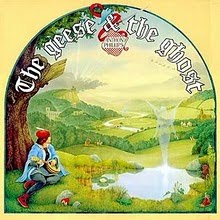



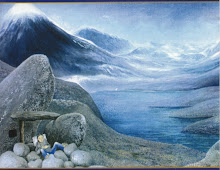

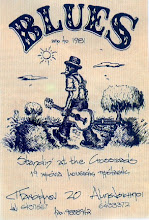

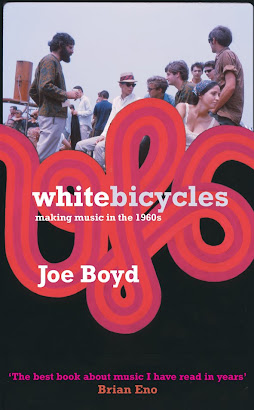
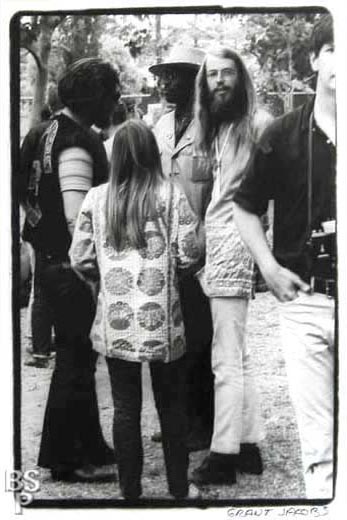
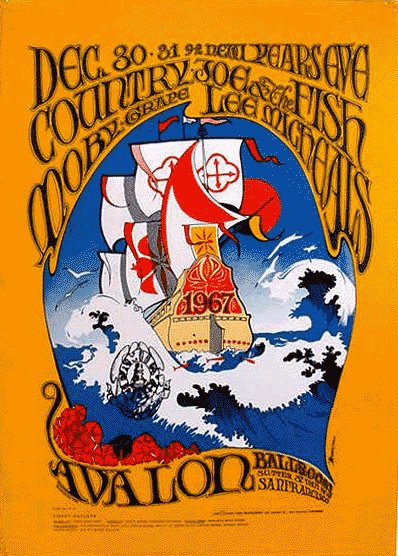
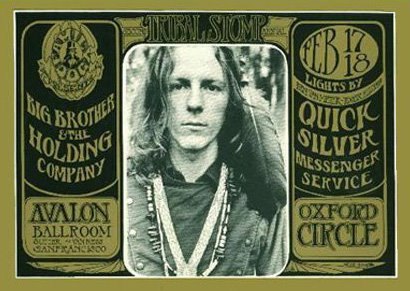
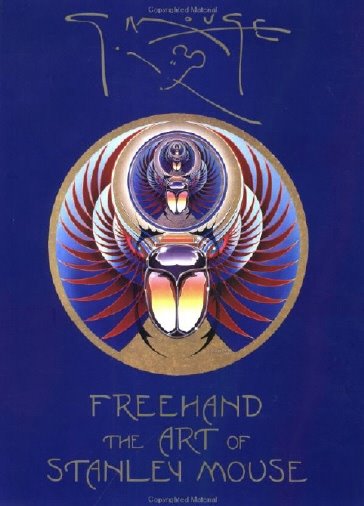.jpg)

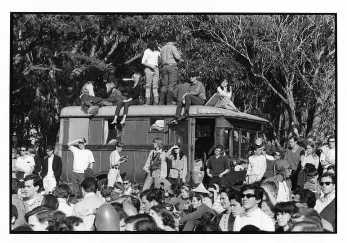




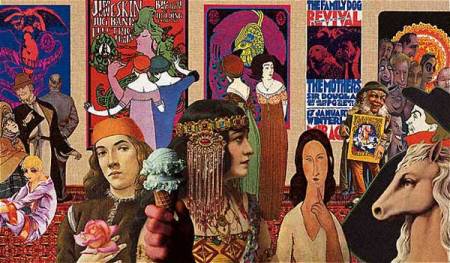.jpg)
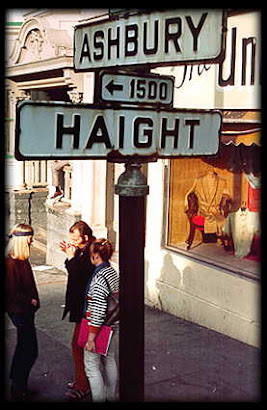
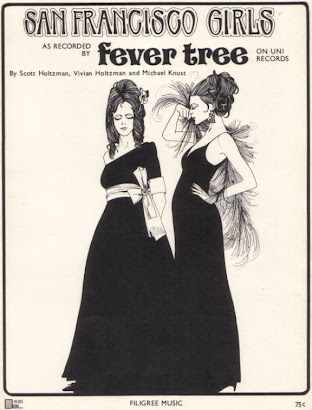
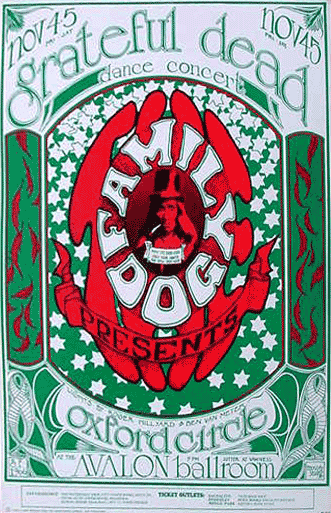
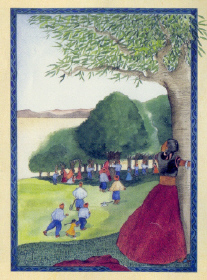
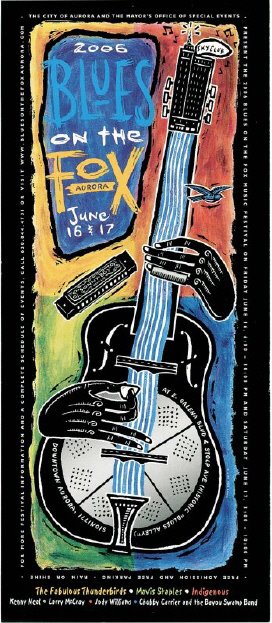





















.jpg)




































































+-+cover.png)














.jpg)
































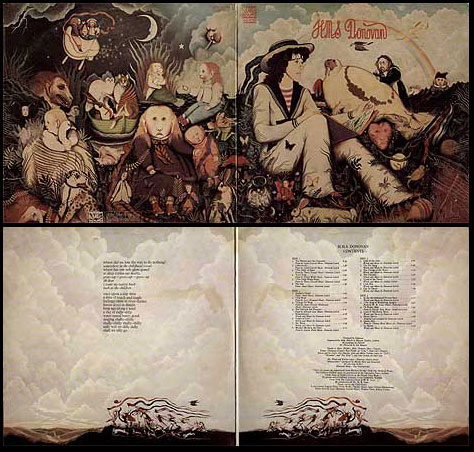


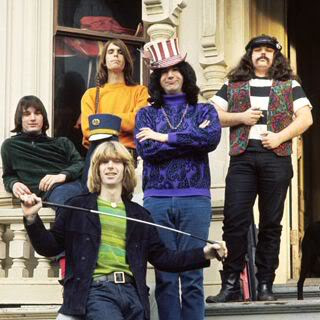





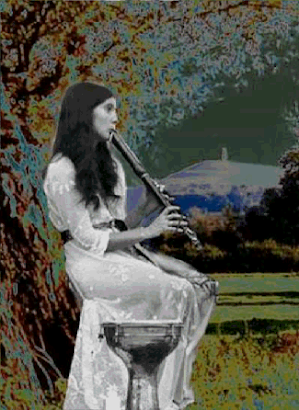







.jpg)



































.jpg)








0 σχόλια:
Δημοσίευση σχολίου